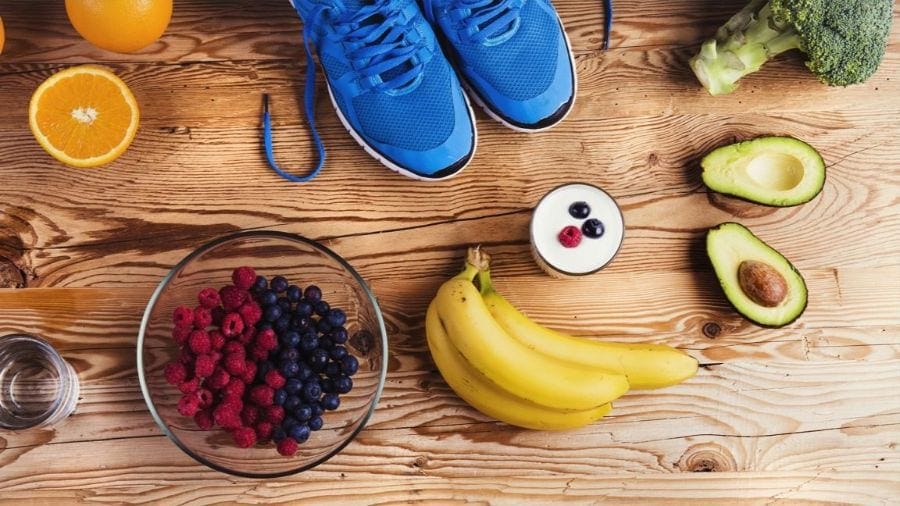People often tend to underestimate just how complicated the process of buffing up is. Sure, hitting the gym and tearing the muscles until they start screaming makes an essential part of this journey. But, in order to pass the finish line, you need to make all sorts of other steps that often end up overlooked. The biggest snub of all has to be the immediate post-workout nutrition – the magic ingredient that helps your body quickly rebuild its glycogen stores and regrow valuable muscle proteins.
Let us then take a look at how this process works in greater detail and what you can do to enhance it.
The nutrients you need to resupply
A workout is a very strenuous process that quickly burns through your body’s nutrient stores. If you want to enable seamless recovery and stimulate faster muscle growth, some macronutrients need to be refilled. So, let us quickly break them down.
Protein
To put it simply, strenuous exercise triggers the breakdown of proteins found in your muscles. The extent to which this breakdown occurs largely depends on the intensity of your training. But, generally speaking, we can say that regular gym sessions create a deficit of 0.14–0.23 grams of protein per pound of your body weight you need to resupply to build new muscle tissue.
Carbs
When you are working out, your body is fueled primarily by its supplies of glycogen. Consuming carbs immediately after training will help you replenish these supplies. As a rule of thumb, the ratio of protein and carbs you need to consume after the training is 1:3. That would roughly translate to 0.5–0.7 grams of carbs per pound of body weight.
Fats
Yes, the whole point of training may be to burn fat, but bringing in a few fresh supplies can go a long way in promoting muscle growth. Even better, if you consume it in moderation, fat won’t slow down digestion or inhibit the absorption of nutrients.
The foods you should eat
And now, let us go through some of the foods that will help you to get these nutrients the most efficiently.
Whey
Whey is a protein powerhouse. And not only that – this by-product of curdled milk also helps in lowering inflammation and even plays a role in blood pressure regulation. Of course, its taste is quite dubious so it’s best to consume it in the form of whey protein concentrate. Check online stores like Bulk Nutrients to find the latest offers.
Omega-3 fatty acids
If you need to replenish the body’s supplies of fats, make sure you are eating omega-3 fatty acids. Why? Well, recent research from Washington University School of Medicine indicates that these nutrients have a very positive effect on the synthesis of muscle proteins as well as the overall muscle growth. Beyond that, omega-3 fatty acids bring a whole slew of various health benefits you simply don’t want to miss.
The most common sources of these beneficial acids are:
- Flax seeds – 6479mg per Oz
- Chia seeds – 5064mg per Oz
- Salmon – 4252mg per Oz
- Walnuts – 2579mg per Oz
- Shellfish – 1346mg per 3oz serving
- Avocados – 223mg per avocado
Eggs
Eggs are yet another incredibly rich source of protein. A recent study indicates that consuming them whole stimulates much better protein synthesis than eating only the egg white (in both cases, the protein content is the same). Aside from that, eggs also contain large amounts of selenium, and vitamins A, B2, and B12.
Carbohydrates
When it comes to carbohydrates, the options you have on the table are more than plentiful. But, you’ll get the most luck with the following ones:
- Fruits – Think of the species that feature ample amounts of carbs per serving like bananas, raisins, blueberries, grapes, and pears.
- Potatoes and pasta – Both of them are a very good quality source. A cup of baked potato contains roughly 1.8oz of carbs. In the case of pasta, that number is slightly lower – 1.5oz.
- Chocolate milk – A perfect storm of properly measured carbs and protein.
- Cereals – Fast-acting carbohydrates can be found in cereals like corn flakes, crisped rice and rice flakes.
Water
This one goes without saying but it’s still worth underlining – all major chemical processes in the human body are made possible by water. In terms of post-workout nutrition, water replenishes lost electrolytes and helps recovery.
We hope these few considerations will help you to take better care of your immediate post-workout nutrition. The road to a strong and well-shaped body is made of countless small steps, all of which bear the same importance. Make sure you are not missing any of them or your journey will take far, far longer.







